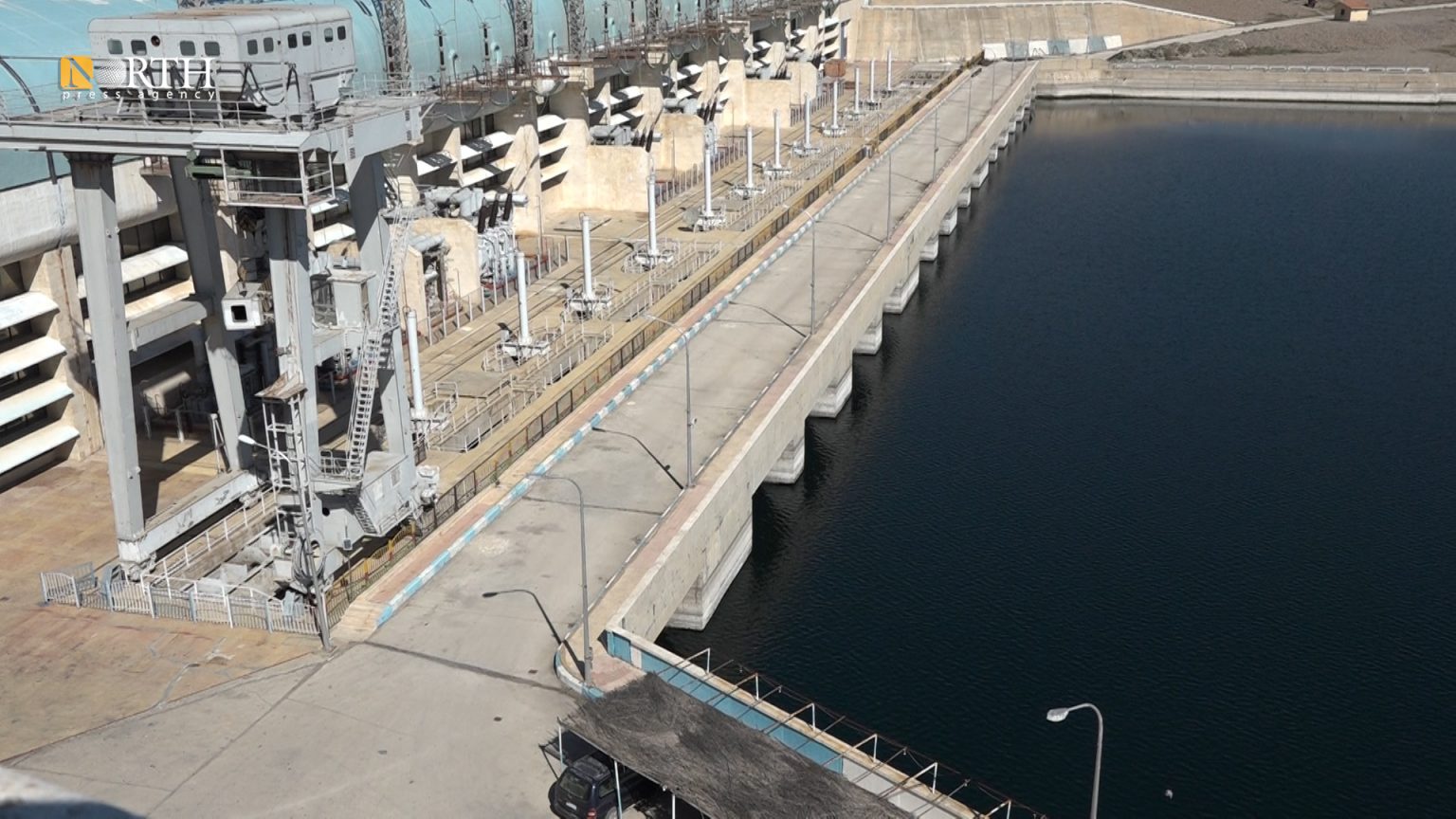MANBIJ, Syria (North Press) – On Tuesday, the administrator at Tishrin Dam, southeast Manbij, north Syria, Hammouda al-Hamadin, told North Press that the decrease in the water level of Tishrin Lake has led to the increase in power rationing hours.
The administration of the Tishrin Dam has recently started a new schedule for electrical rationing due to the lack of water resources and the inability to operate all the turbines that generate power.
During the past few days, the cities of northeastern Syria have witnessed a significant decrease in the hours of public electricity compared to the past months.
Tishrin Dam, located 20 km southeast of Manbij, is the second largest power station in Syria, after the Euphrates Dam in Tabqa.
According to the Energy and Communications Office in the Jazira region, the dam level has decreased in the recent period due to the lack of water resources from Turkey and reached its lowest levels within a year.
“The basic level was 325 m³, but now the level is 320.80 m³, which means that the level decreased about 5.2 m³,” al-Hamadin said.
“With the decrease of water level, we can only operate one turbine,” he added.
Before the level decreased, the amount of power generated by operating a single turbine was 105 megawatt-hour, according to al-Hamadin.
As for now, after the decrease, its production does not reach 70 megawatt-hour, which is very low.
We are facing a real catastrophe in summer, which will be represented by cutting off drinking water and increasing rationing hours if the situation continues, according to al-Hamadin.
Turkey keeps water in six dams, the largest of which is Ataturk Dam and the second largest in the Middle East, with a storage capacity of 48 billion m³, violating by that the international agreement.
According to the agreement signed between Syria and Turkey in 1987 related to the Euphrates River, Syria’s share of water coming from Turkey, is 500 m³ per second.
The water supply in the Euphrates River now reaches 200 m³, while in the previous days, it was 800 m³, according to al-Hamadin.
We are now using a rationing program, from 12 am to 6 am and from 6 am to 2 pm, for service lines, he said.
If the level continues to decrease, we will start a new rationing program, whereby hours of power will be limited to 7 hours only, starting at 5 pm and ending at 12 am, according to al-Hamadin.

